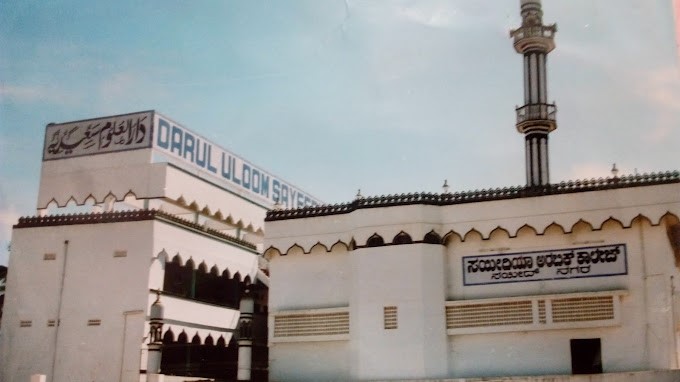Radiance News Service
The Karnataka Police have booked National Commission for Protection of Child Rights (NCPCR) chairman Priyank Kanoongo, a day after he said the children at a Bengaluru orphanage are living a “medieval Taliban life.”
After a surprise inspection in the Darul Uloom Sayideeya Yateemkhana in Kaval Bairasandra under the DJ Halli (Devarajeevanahalli) Police Station limits., Kanoongo said the orphanage was being run illegally, lacked toys, and the children appeared if they saw any “Maulvi” coming their way. The police registered a case on the basis of the complaint filed by Ashraf Khan, secretary of the Yateemkhana.
Speaking to the Indian Express, Khan said that he was shocked to read Kanoongo’s post on X and wondered how the chairman could compare the children and facilities at the orphanage to the Taliban.
“When Kanoongo came here he claimed to be from the human rights commission. He inspected the entire premises. The children who had their lunch were sleeping inside and he appreciated the facilities provided and also assured to provide funds to develop the place. We also explained to him that more than 60 orphan children who lost their parents during COVID-19 were being taken care of,” Khan said.
The organisation has been running since 1980 and has expanded since the pandemic, as many children lost their parents to the virus.
DJ Halli police registered a case under sections 447 (criminal trespass), 448 (house trespass) and 295 (a) (Deliberate and malicious acts, intended to outrage religious feelings of any class by insulting its religion or religious beliefs).
This FIR comes after the NCPCR directed the Karnataka chief secretary to register a case against the orphanage, saying the children at the facility are living a “medieval Taliban life”.
According to Kanoongo, the children are made to wake up at 3.30 am to go to the madrassa and sleep in the afternoon. They train them to read the Quran from evening to night with short breaks for namaz during the day, and do not have avenues for entertainment or television.
Kanoongo also accused the orphanage of owning property worth crores of rupees. According to a report in The Indian Express, “An official said the NCPCR has already sent the letter to the Karnataka chief secretary stating a case has to be registered under sections 42 (foster care), 34 (state government’s role in maintaining children’s homes), and 75 (abusing or neglecting child) of the Juvenile Justice Act. The body has also sought a report within a week.”
However, the teachers and authorities of the Yateemkhana speaking to the media said that the NCPCR team appreciated their good work during the visit. Their complaint stated that a group of men and women — who claimed to be human rights activists — visited their trust-run orphanage around 2 am on Sunday.
Speaking to website South First, DJ Halli Police Station’s station house officer (SHO) said that the cops had initially sent a notice to the orphanage, seeking its registration certificate and other bona fides, and soon after, the orphanage management presented the trust deeds to the police.
Meanwhile, the management’s complaint was received, and an FIR was registered against the group of people who allegedly inspected the orphanage. Following this complaint, the police booked Kanoongo and others for criminal trespass and also for outraging religious sentiments and allegedly spreading hatred against the minority community on social media. Additionally, the activists did not possess identification of affiliation to NCPCR, and did not issue any notice to the Yateemkhana earlier.
This is not the first run-in with Muslim run institutions or madrasas that NCPCR, especially under the term of Kanoongo has had. Repeatedly, in states such as Uttar Pradesh and others, the NCPCR has targeted madrasas and accused them of being in violation of the Right to Education (RTE) Act, and in an affidavit filed before the Allahabad High Court earlier this year, the NCPCR said that “education imparted to children in madrasas in not adequate or comprehensive”, in connection with a matter related to state funding for religious minority education.
In that case, the child rights body through an impleadment application (IA) sought to assist the court in the matter and claimed that education in madrasas is in blatant violation of the law. Earlier in December 2022, the NCPCR asked all states and Union Territories to conduct an inquiry into all government-funded and recognised madrassas that are admitting non-Muslim children.




